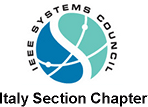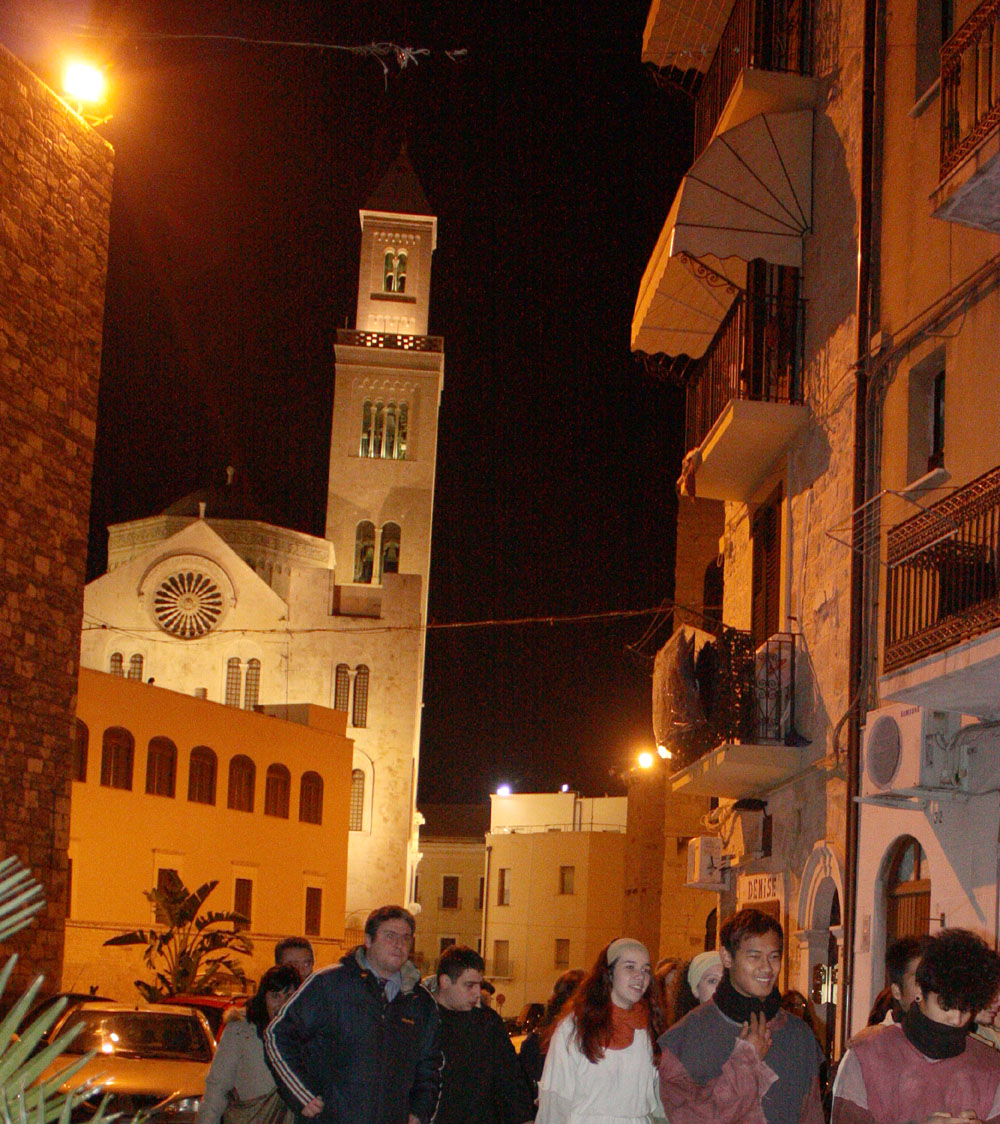 | EESMS 2016 |    |
| Home |
| Sponsors |
| Organizers |
| Call For Papers |
| Paper submission & Author instructions |
| Program |
| Registration |
| Venue and accommodation |
| Tourist Info |
| Contacts |
| History |
| Links |
 |
2016 IEEE Workshop on Environmental, Energy, and Structural Monitoring Systems Bari, Italy, 13-14 June 2016 Sponsored by the IEEE Italy Section Supported and promoted by the IEEE Italy Section Systems Council Chapter and the IEEE Italy Section Instrumentation and Measurement Society Chapter Organized by the Politecnico di Bari andthe Università degli Studi di Milano |
|
Organizers Honorary Chairs Salvatore Marzano, Politecnico di Bari, Italy Vincenzo Piuri, Università degli Studi di Milano, Italy General Chairs Vincenzo Di Lecce, Politecnico di Bari, Italy Massimo La Scala, Politecnico di Bari, Italy Stefano Ferrari, Università degli Studi di Milano, Italy Program Chair Cataldo Guaragnella, Politecnico di Bari, Italy Co-Program Chairs Ruggero Donida Labati, Università degli Studi di Milano, Italy Alfredo Vaccaro, University of Sannio, Italy Special Session Chairs Dora Foti, Politecnico di Bari, Italy Tiziana D'Orazio, CNR-ISSIA Bari, Italy Gianluca Selicato, University of Bari, Italy Publication Chair Alessandro Quarto, myHermes, Italy Publicity Chair Domenico Soldo, myHermes, Italy Local Arrangement Chair Angelo Cardellicchio, Politecnico di Bari, Italy Program Committee Mihaela Albu, Politehnica University of Bucharest, Romania Alberto Amato, Politecnico di Bari, Italy Francesco Amigoni, Politecnico di Milano, Italy Leopoldo Angrisani, University of Naples Federico II, Italy Francesco Bellocchio, Fresenius Medical Care, Germany Fabio Bovenga, Research National Council of Italy, Italy Rita Dario, ASL-Bari, Italy Alessandro Ferrero, Politecnico di Milano, Italy Antonio Galeone, Sincon S.r.l., Italy Angelo Genovese, Università degli Studi di Milano, Italy Carmelo Gentile, Politecnico di Milano, Italy Enrica Gentile, Università di Bari, Italy Antonello Monti, RWTH Aachen University, Germany Antonio Moschitta, University of Perugia, Italy Enrique Munoz Ballester, Università degli Studi di Milano, Italy Dario Petri, University of Trento, Italy Mario Daniele Piccioni, Politecnico di Bari, Italy Vito Renò, ISSIA CNR - Bari, Italy Maria Rizzi, Politecnico di Bari, Italy Gianluca Sforza, Università degli Studi di Milano, Italy Web Site |
CALL FOR PAPERS The growing strategic importance of environmental, energy, and structural monitoring boosts the need for flexible, effective and innovative solutions for design methods and implementation technologies with strong adaptation and evolution capabilities. This workshop aims to discuss the most recent advances in complex monitoring systems from a cross-disciplinary perspective, encompassing technology, methods and applications. Contributions are solicited in all aspects of environmental, energy, and structural monitoring, including the following topics within these application areas:
Details for the submission and all information concerning the workshop are available at the workshop web site at http://eesms2016.aeflab.net/. Acceptance/rejection will be emailed by 15 March 2016. The final manuscript is due by 1 April 2016. Submission implies willingness to register at the conference, pay the registration fee and present the paper in person. Papers will be included in the proceedings only if at least one author will register by 15 April 2016 (IEEE member and non-member fees only are acceptable to this purpose) - no exceptions. Papers included in the proceedings will be submitted for possible inclusion in the IEEE Xplore digital library only if the paper will be presented in person at the conference by one of the authors. If an author covers more than one paper with her/his registration to guarantee inclusion in the proceedings, she/he must pay a 50 Euro surcharge for each paper in excess of one. Special Session on Monitoring issues for smart microgrids energy management The microgrid structure is one of the solutions for the effective implementation of the smart grid (SG) paradigm in modern electrical systems.
Electrical generation, storage and load monitoring is a key issue for the microgrid concept feasibility, providing useful information for grid state estimation, prognostics and diagnosis, as well as for energy management.
The advanced metering, monitoring, and management are the backbone of the SG infrastructure system. On such a basis, this SS calls contributions in the framework of monitoring application systems, including both hardware and software solutions, as well as methodological approaches.
Special Session on Structural control and Health monitoring systems Today the preservation of architectural heritage and civil structures represents a considerable concern in many countries, especially due to the decay effects and to the risk associated to natural extreme actions, as earthquakes.
An evaluation supported by non-destructive methods is especially important for ancient buildings. Heavy interventions can be avoided if a rigorous previous assessment is enforced in structures that often have suffered many changes in time.
With this aim, the workshop focuses on non-destructive methods based on sensors technology, data processing techniques and analysis methods; all the improvements of these aspects are interesting themes of innovation and researches by considering also the always more performing technological devices available for the scientists.
Special Session on Coastal and Sea Monitoring The protection of coastal communities and ecosystems, which are strongly affected by climate change and human activities, is one of the main aims of the environmental policy. To this purpose, a long term monitoring action of the principal hydrodynamic and biochemical parameters in vulnerable and sensitive coastal site could be a useful managing support for the local authorities in coastal management and safeguard.
Special Session on Enabling Technologies and Methodologies for Smart Monitoring of Critical Infrastructures Critical infrastructures include assets that are essential for the functioning of a society and economy, such as electrical grids, energy systems, telecommunication networks, water supply systems, transportation systems, financial and security services.
|